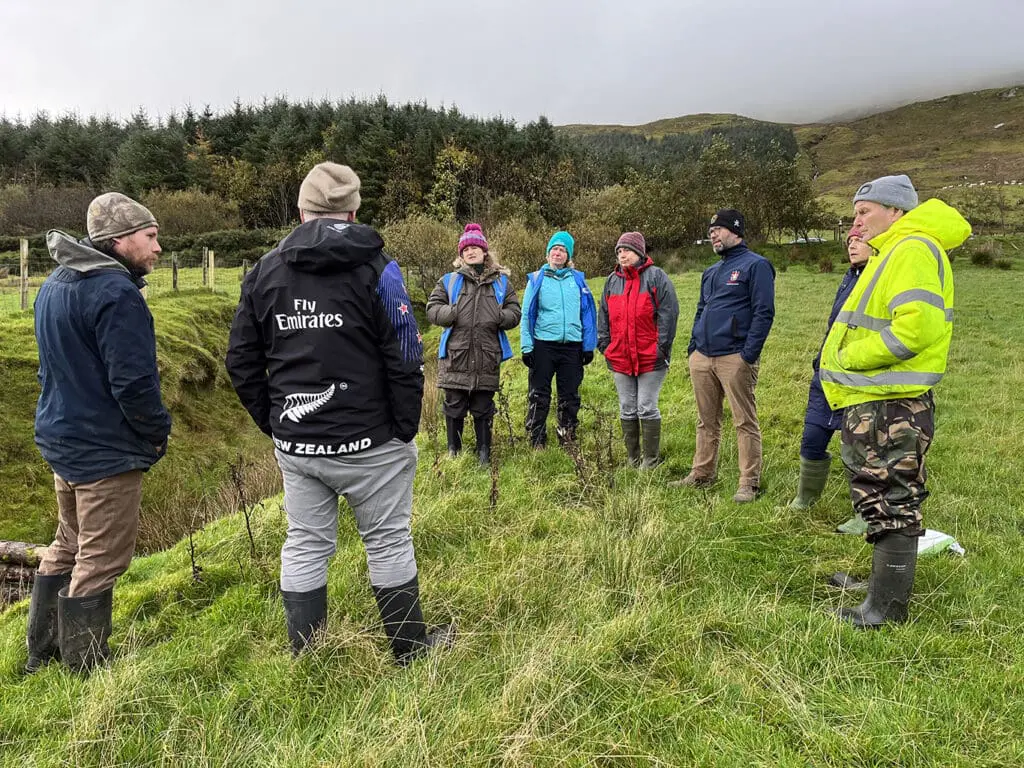
The Inishowen Rivers Trust (IRT) recently hosted the New Zealand ambassador to Ireland, Trevor Mallard, on a field trip to sites in Carndonagh and Clonmany to better understand how IRTs natural flood management projects in the area can potentially help New Zealand with its flooding issues.
The August 2017 flood in Inishowen was a major event in the memory of local people and not something that is likely to be forgotten due to the amount of damage done to land and property. Productive land was lost, businesses wrecked, infrastructure destroyed and transport links cut off.
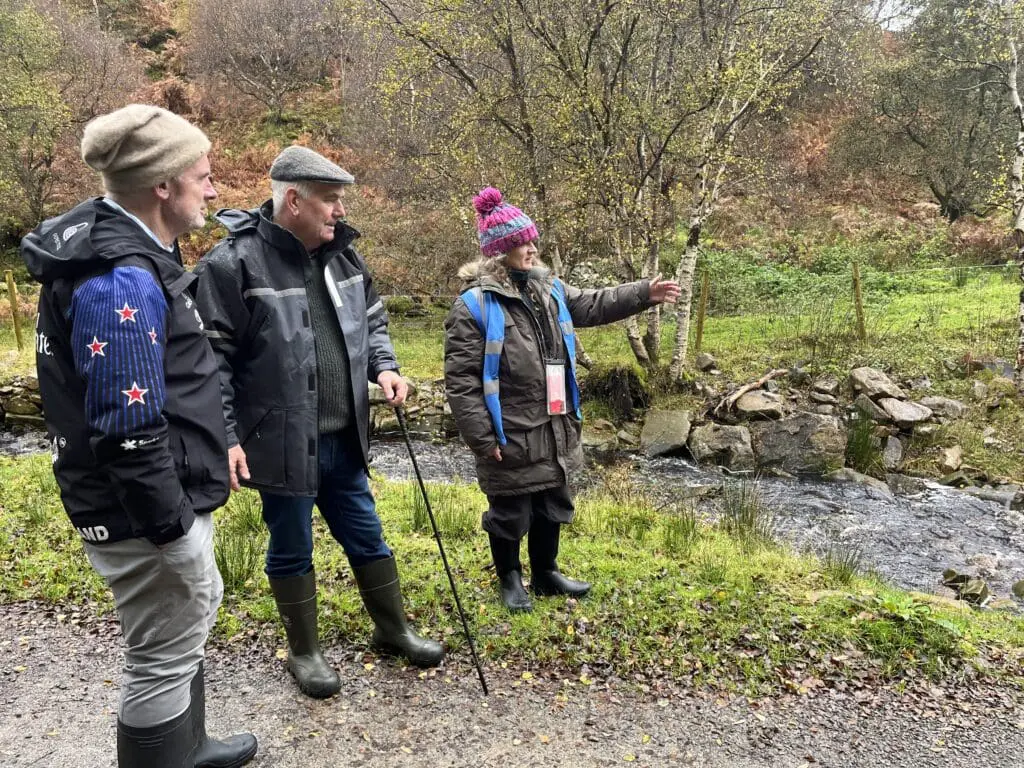
The folk memory of past flooding in the 1950’s is still present in the older people, but the younger generation had not seen anything like this locally in their lifetime. Similar rainstorms are now likely to occur more often in the future meaning that these normally “once-in-a-lifetime” events will be seen more frequently over a lifetime, and ways are now needed to control any flooding using nature based solutions.
The first stop of the day was to inspect work carried out by IRT in 2020 on the Glennagannon River at Riversdale, Carndonagh where flooding had scoured the riverbank downstream of a bridge. The landowner had requested that IRT repair the riverbank using natural materials in an effort to reduce the impact of the river on the riverbank when in flood. As a result of these revetment repairs the riverbank has completely revegetated and works more naturally with the water flow to slow it down, deposit more gravel and to keep temperatures more stable for the fish and wildlife in the river.
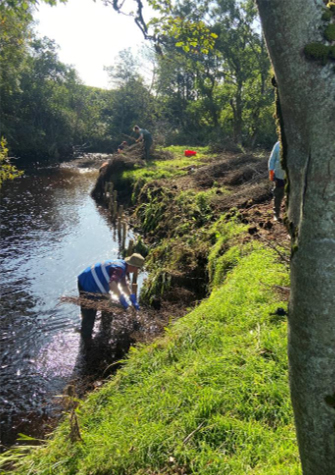
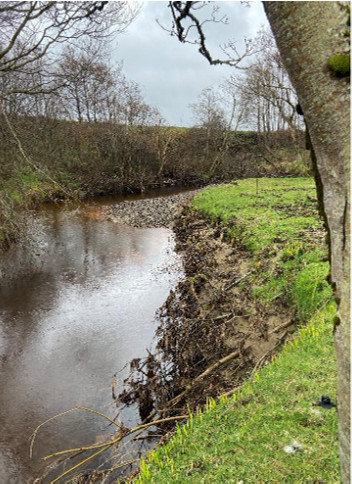
At Adderville, Clonmany, Ross Buchanan of Inish Forestry showed the ambassador how slowing down the flow of water through hilly farmland can reduce the impacts of flooding further down the Ballyhallan River at Clonmany village. In 2021 Inish Forestry undertook the physical works of installing up to 69 structures including leaky dams and check dams on the Ballyhallan catchment to slow the flow of water in the upper reaches of the catchment and delay the release of it so that any future flood peaks in Clonmany can be spread out over time, making it less likely for the river to flood as badly as it had in August 2017.
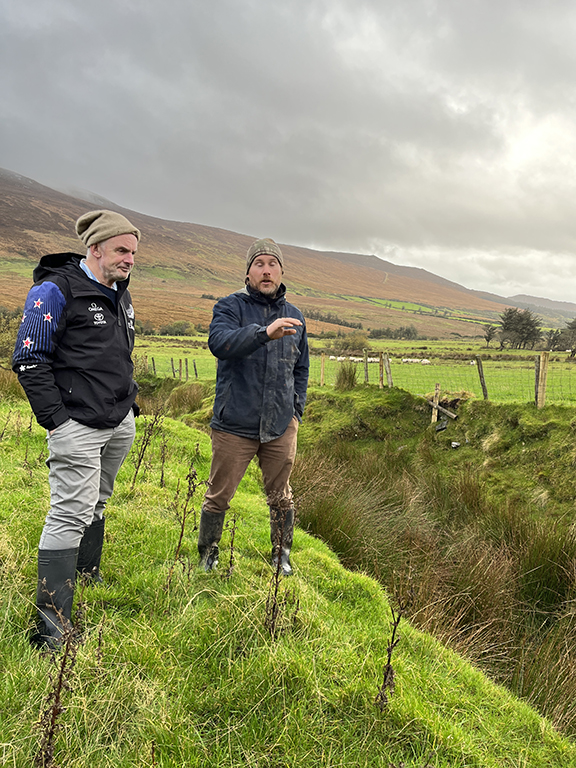
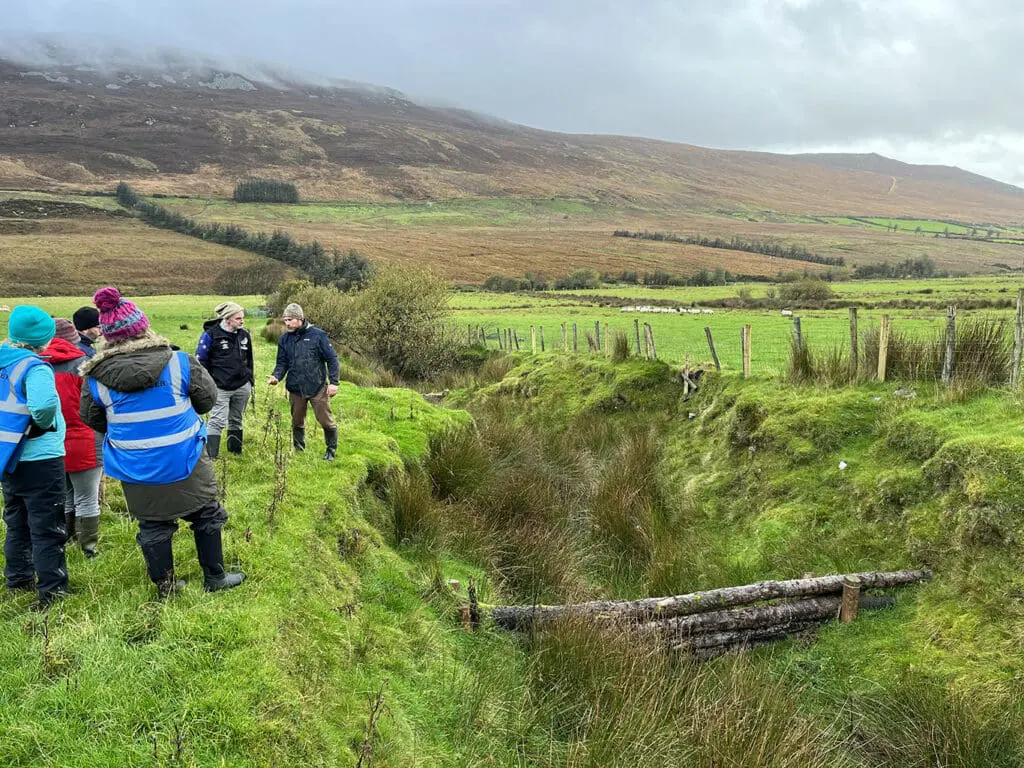
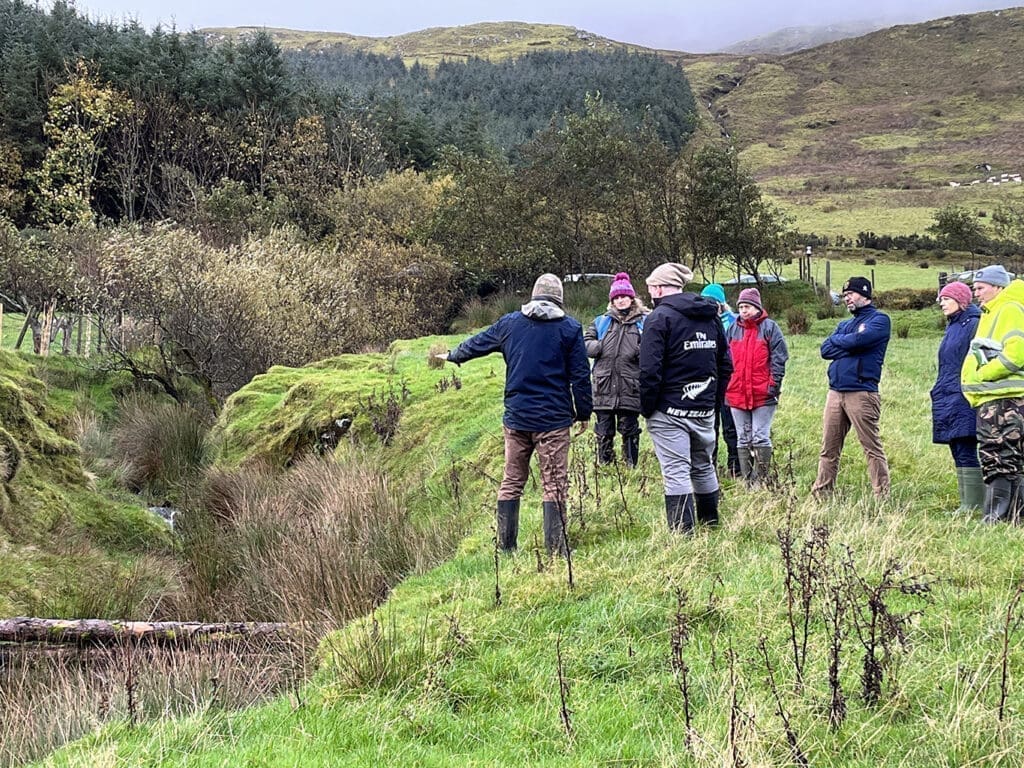
The final stop in the tour was a visit to the picturesque Glenevin Waterfall to recall the destruction caused by the August 2017 flood there and the subsequent rebuilding of the famous walkway through a big community effort involving landowners, local people and contractors. It was discussed how the potential for natural flood management measures upstream could delay the release of water over the waterfall without interfering with the waterfall’s natural beauty and flow.
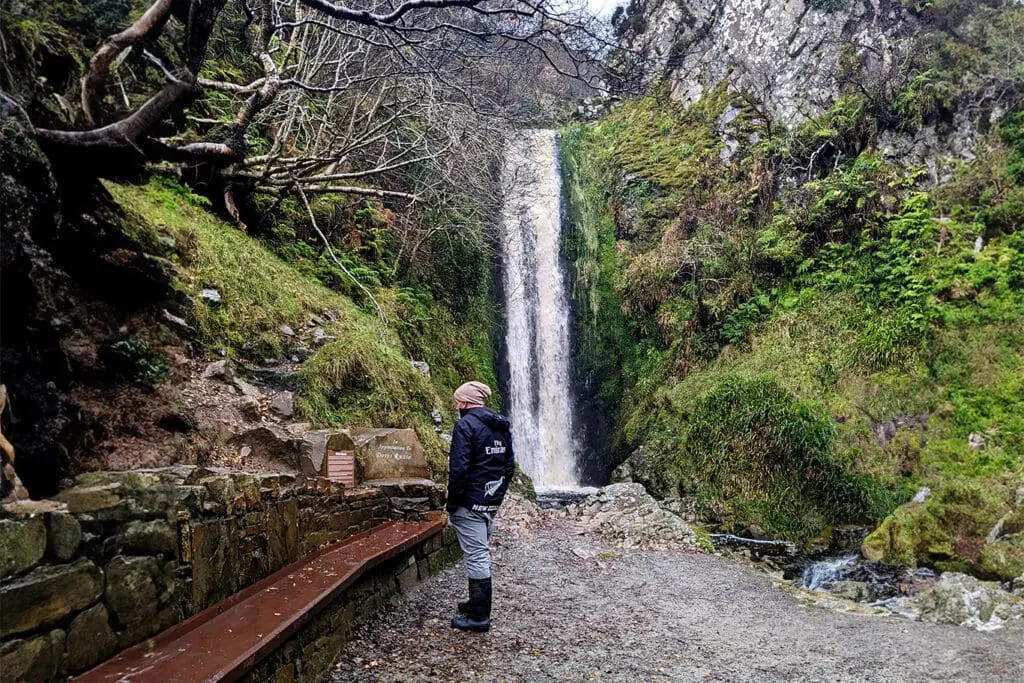
Sean Toland, Project Officer at the IRT, was pleased that the ambassador met with IRT and local landowners Patrick Roddy and Michael Devlin to discuss how NFM works on their land saying: “It’s great to see that the Kiwis are interested in what we are doing here in Inishowen around natural flood management with the idea of using it in places like the Hawkes Bay and Gisborne which have been badly affected by flooding in recent times.”
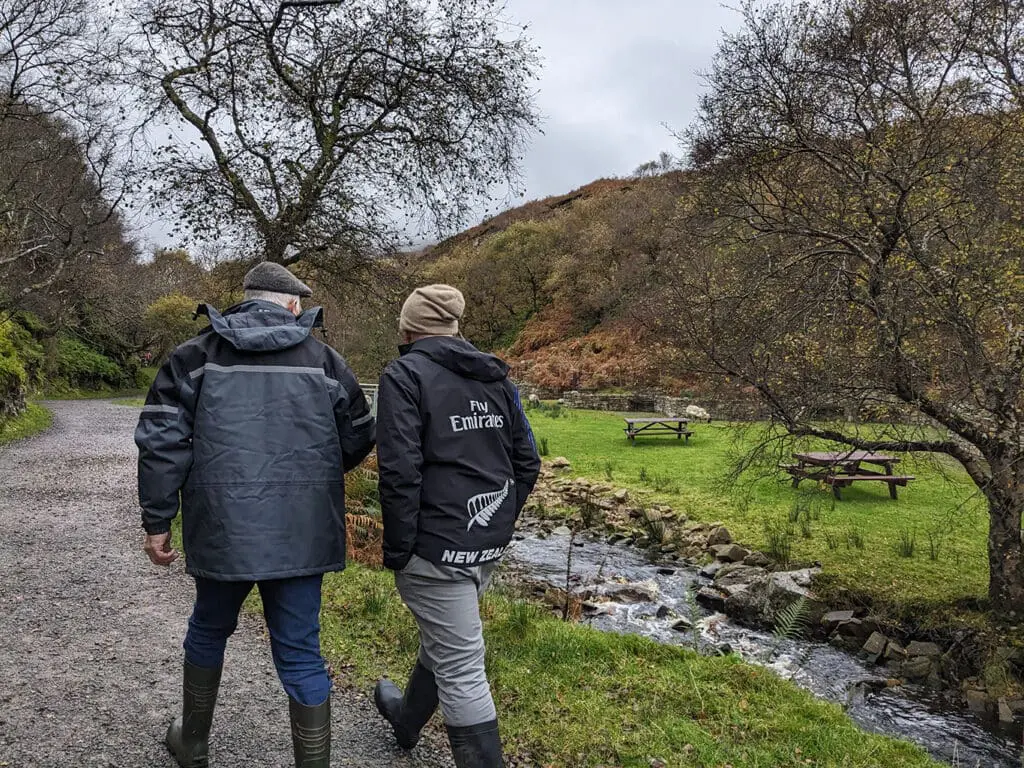
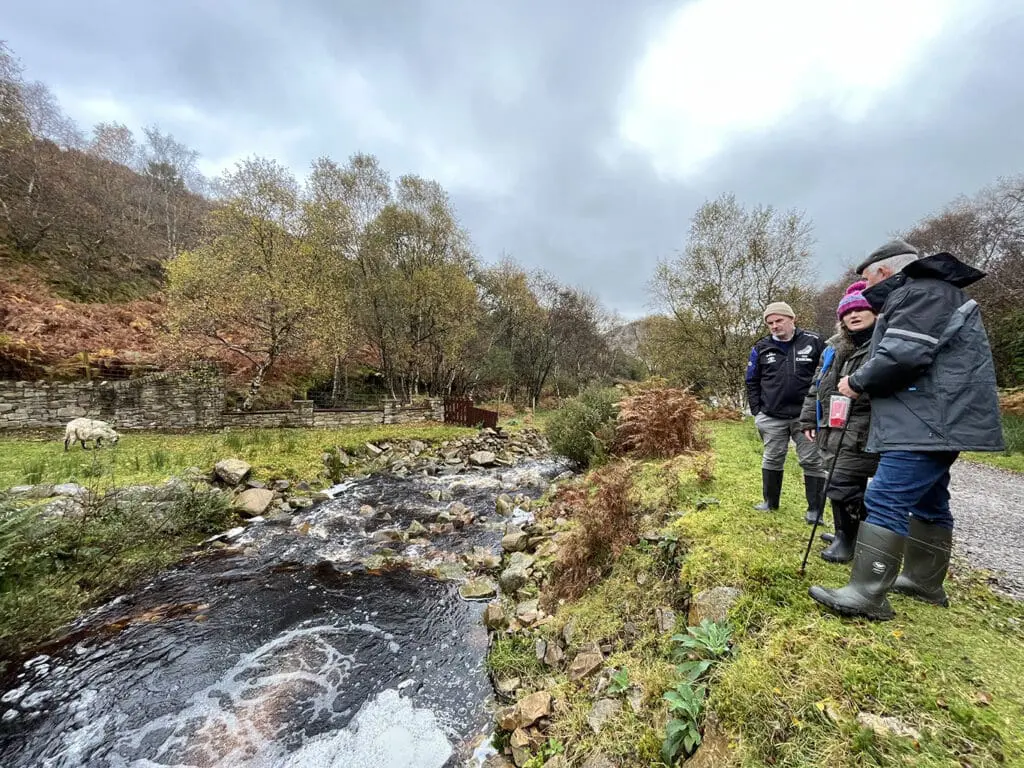
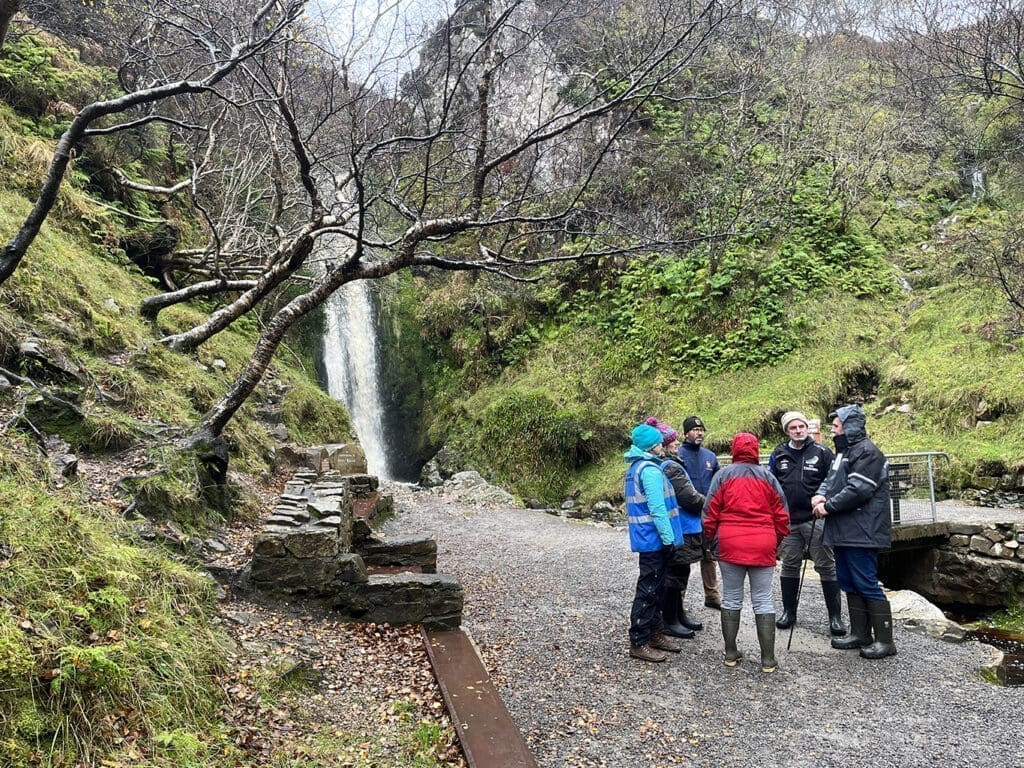
Ambassador Mallard was delighted to be able to make a side trip from Ramelton to Inishowen after celebrating the 150th birth anniversary of the legendary All Black captain Dave Gallaher, noting: “It proved to be a highly engaging and informative visit, shedding light on common concerns that Ireland and New Zealand share, and the nature-based solutions that the Inishowen Rivers Trust have pioneered.”
After a cool, damp and overcast morning out on the hills the group stopped off at the Market House Café in Clonmany to warm themselves up with coffee and scones and discussed what had been seen and heard on a highly informative trip for all involved. The ambassador then continued on his fact finding mission after lunch to meet with Inishowen Upland Farmers to discuss common farming interests between Ireland and New Zealand.

